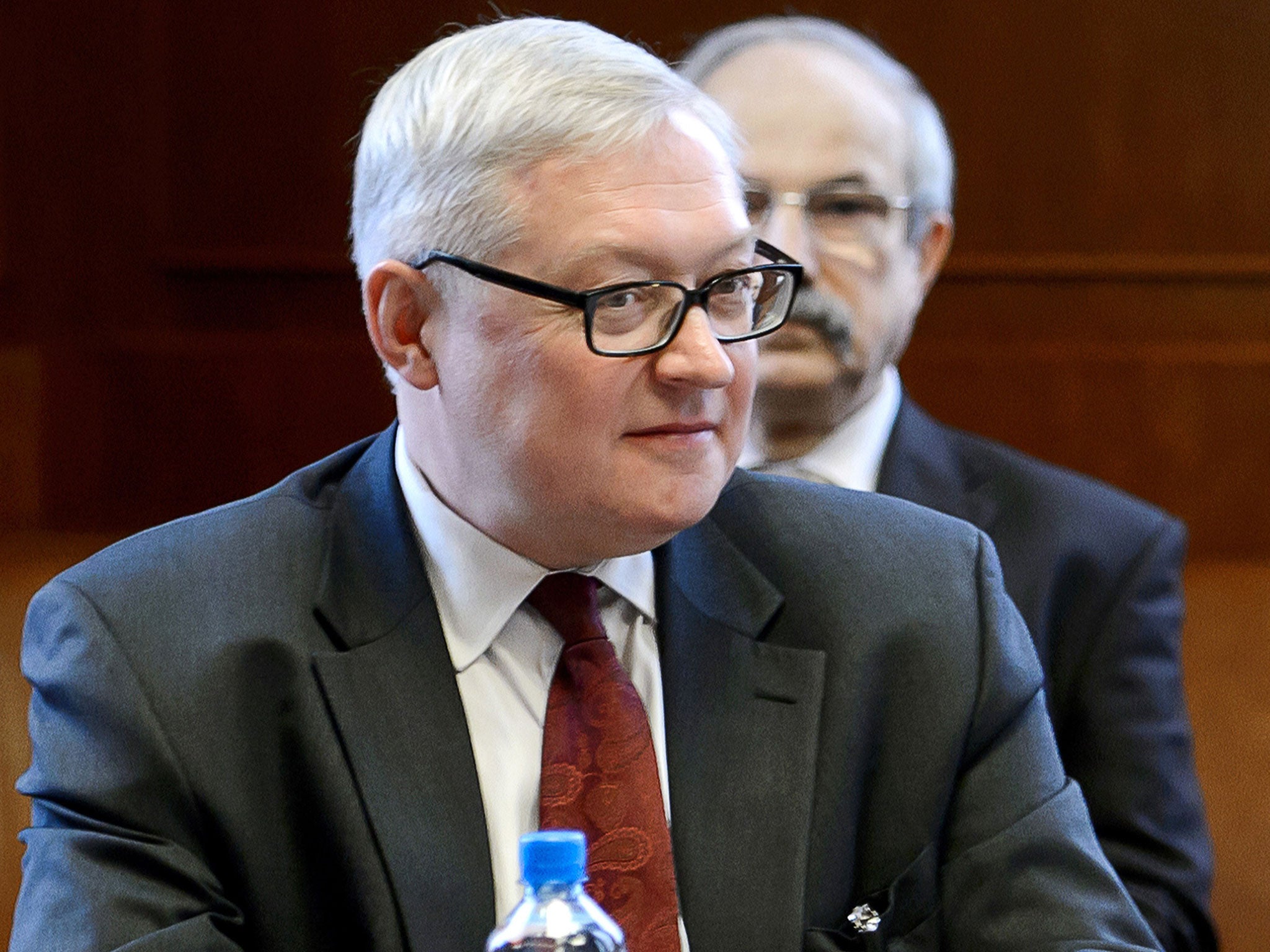Russia promises retribution over any new US sanctions on Moscow
Russian Deputy Foreign Minister says it will introduce 'series of measures' if US tightens restrictions following controversial bombing of Aleppo

Your support helps us to tell the story
From reproductive rights to climate change to Big Tech, The Independent is on the ground when the story is developing. Whether it's investigating the financials of Elon Musk's pro-Trump PAC or producing our latest documentary, 'The A Word', which shines a light on the American women fighting for reproductive rights, we know how important it is to parse out the facts from the messaging.
At such a critical moment in US history, we need reporters on the ground. Your donation allows us to keep sending journalists to speak to both sides of the story.
The Independent is trusted by Americans across the entire political spectrum. And unlike many other quality news outlets, we choose not to lock Americans out of our reporting and analysis with paywalls. We believe quality journalism should be available to everyone, paid for by those who can afford it.
Your support makes all the difference.Russia has promised “asymmetric” retribution if the US imposes new sanctions on Moscow over its bombing campaign in Syria
Russian jets have been pounding the city of Aleppo in recent weeks in support of forces loyal to Bashar al-Assad, the Syrian president. Hundreds of civilians, many of them children, have reportedly been killed in air strikes, leading the US and the EU to consider tightening sanctions on Moscow.
Now Russia has said it is prepared for further punishment and promised to introduce “a series of measures” should it face tougher sanctions.
Speaking to the international affairs committee of the Federation Council – the upper house of the Russian Parliament – the country’s Deputy Foreign Minister Sergei Ryabkov said: “The sanctions policy of the US towards Russia has continued for a long time."
"We have used this period to conduct certain research and prepare a series of measures that will be applied in an asymmetric way should the sanctions be toughened further.”
It comes as the US refused to rule out further restrictions on Russia over its military support for President Assad. John Kerry, the US Secretary of State, has alleged “crimes against humanity” were being carried out every day in Aleppo and warned the threat of sanctions would remain on the table while Russia’s bombing campaign continues. This is likely to include asset freezes and travel bans for individuals and organisations believed to be linked to the bombing of Aleppo.
Mr Kerry re-iterated his concerns in a phone call with Sergei Lavrov, the Russian Foreign Minister, on Monday, according to the US State Department.
"They talked about the importance of the continued multilateral discussions in Geneva and how ... to get a meaningful cessation of hostilities and the delivery of humanitarian aid”, a spokesman said.
The Syrian Observatory for Human Rights says around 2,700 people have been killed or injured in Aleppo since Russian-backed Syrian forced launched a new assault on the city in September.
The EU last week backed down on tightening sanctions after Italy opposed a British, French and German proposal to issue a further warning of new restrictions on Moscow if “current atrocities” in Syria continue.
Instead, European leaders adopted a vaguer text announcing they are "considering all available options should the current atrocities continue”.
In response to earlier sanctions Russia suspended a deal with America on reprocessing weapons-grade plutonium. Mr Ryabkov said this freeze could be continue for an “unlimited” time because of US policy towards Moscow.
Any extension of the deal would require the US to end its sanctions and decrease its military presence in Europe, he added.
The US Magnitsky Act was introduced in 2012 and bans a number of senior Russian officials from entering the US. It came shortly before Russia’s military annexation of Crimea, which previously belonged to Ukraine, prompted the EU to also adopt economic sanctions against Moscow.
Join our commenting forum
Join thought-provoking conversations, follow other Independent readers and see their replies
Comments